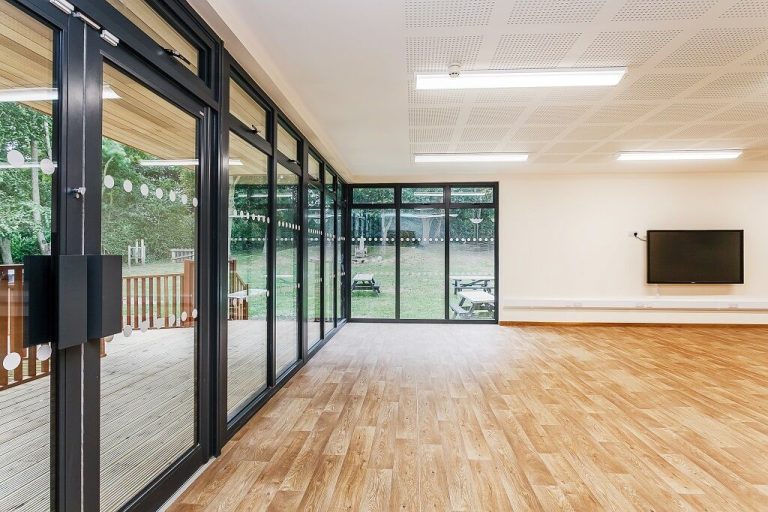A consortium of North East organisations renowned for driving transformation in the global construction market have been shortlisted for the chance to secure up to £50million to boost the region’s economy. Led by Northumbria University, Newcastle, the International Centre for Connected Construction, known as IC3, is one of just 17 projects from around the country that will receive £50,000 in seed corn funding. The funding, announced today, will enable the project team to prepare a detailed bid for up to £50million from UK Research and Innovation’s flagship Strength in Places Fund – a competitive scheme to support significant local economic growth using a place-based approach to research and innovation funding. Bringing together a wealth of expertise from across the North East, IC3 is designed to attract more investment, skills, and jobs to the region. It proposes to provide a range of interventions to build on the impressive reputation of the North East as a hotbed of innovation in digital construction. IC3 will be a global hub for the creation and dissemination of knowledge and understanding about connected construction. The IC3 team will curate a selection of key building projects regionally, nationally, and internationally to demonstrate the expertise of the partnership, and the value of new ways of working to inspire the sector. It will work as an accelerator to nurture and catalyse new commercial businesses and ideas that solve major challenges in the industry; as well as leading an intensive industrial research programme designed to develop new products, services and processes from the region. Encompassing both Northumbria and Newcastle universities and various public sector organisations, the IC3 consortium is dominated by industry representatives including NBS, Ryder Architecture, Arup, Cundall and Dynamo North East – the region’s digital network. These strong links between higher education, public sector and industry are critical to its success, and represent a key differentiator for the Centre. Professor Andrew Wathey CBE, Vice-Chancellor and Chief Executive of Northumbria University said: “Today’s government announcement highlights the critical role the North East region will play in leading a digital revolution in the construction industry. The scale of activity planned by IC3 will place the region at the forefront of excellence for digital construction with global impact. “We are delighted to play a leading role in this consortium, which brings together some of the region’s foremost organisations. IC3 will use innovation, research and development to open up global market opportunities and ultimately bring jobs and investment to the North East. “This is particularly important as we move into regeneration following the COVID-19 pandemic, and IC3’s success here demonstrates the important role our region has to play in the national and global recovery.” Pat Ritchie, Chief Executive of Newcastle City Council, said: “The North East is renowned as a world-leading centre of innovation and we are proud to be part of the IC3 bid which will place our region at the cutting edge of global construction. “The city is poised to get started on a number of construction projects and this project will provide a welcome boost to business and job creation in the wake of the coronavirus pandemic; laying the foundations for us to develop and retain local skills and attract further investment to the region.” In response to immediate and arising challenges facing the industry, IC3 will focus on three main areas to underpin more effective and collaborative ways of working that lead to better outcomes for businesses, occupants, society, and the environment. It will transform the way buildings are procured to ensure lifetime value in social and environmental terms rather than lowest cost, and implement recommendations from the post-Grenfell Hackitt Review that stipulate all buildings must have up-to-date digital records to ensure assurance and traceability, and ultimately safety. It will also improve the performance of buildings to ensure they are sustainable, healthy and safe places to live and work. Rob Charlton, CEO of Space Group and co-founder of BIM Show Live, the original show dedicated to Building Information Modelling launched in Newcastle, said: “The North East has, for a long time, punched way above its weight when it comes to the impact on the global construction market. “The close proximity of key industry players has driven a unique ecosystem here where even the biggest competitors come together to make positive changes. But we’re at a critical stage where other destinations are catching up, and we need a mechanism to support and boost what we have already created. “IC3 is the perfect vehicle for that, and now, as the industry looks to build back better post-COVID-19, is the perfect time.” IC3 plans to work with partners across the construction ecosystem over the next five years to bring to life 15 demonstrator projects that incorporate and exemplify the digital technologies and processes developed through IC3. These will encompass a range of building projects from tourism and leisure, to social housing and hospitals and infrastructure. Alongside this, IC3 will provide innovation support to around 100 businesses in its first three years and will work to create up to 20 new businesses in the same period, helping to develop new products, services, processes, and spinouts. The consortium will also lead on collaborative research projects between industry and academia and will work towards reforming and revitalising education for construction, through the creation of new programmes that will upskill the existing workforce and inspire the next generation. Dame Kate Barker, chair of the Strength in Places Fund panel said: “The Strength in Places panel was pleased to recommend this bid for early stage funding. It provides evidence of excellent research that meets business need and great potential for collaboration, by bringing together a consortia to contribute to increased growth and productivity in areas of local economic activity.” The IC3 consortium is led by Northumbria University, in partnership with Arup, BIM Academy Cundall, Dynamo North East, NBS, Newcastle City Council, Newcastle University, North East Local Enterprise Partnership, North Star Ventures, Ryder Architecture, Space Group, Waterstons and Womble Bond Dickinson. Find out more about IC3 and














